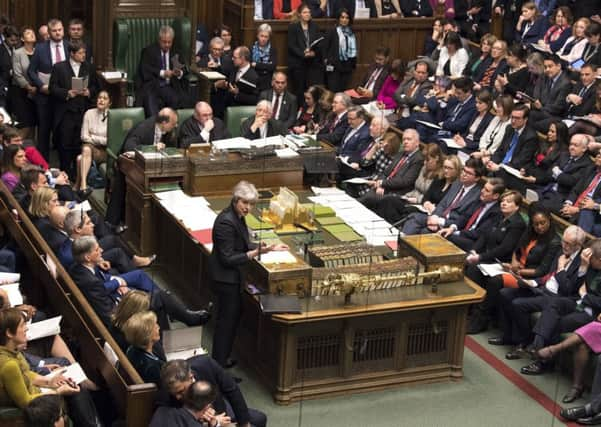Time to bring order to House of Commons by redesigning it – The Yorkshire Post says


It is also perturbing that Parliament, the global beacon of democracy, is in legislative limbo because of Brexit – and the political uncertainty over the Government’s future – as the Tories look for a replacement for Theresa May. Yet, while such procedural points will inevitably come to the fore, it should not be at the expense of far more fundamental issues, namely whether the Commons chamber is still fit for purpose in the 21st century.
Badly damaged in the Second World War, it was Winston Churchill who made the case for full restoration. “We wish to see our Parliament a strong, easy, flexible instrument of free debate,” he said. “For this purpose, a small chamber and a sense of intimacy are indispensable.”
Advertisement
Hide AdAdvertisement
Hide AdHowever it could be argued that the close confines of the green benches on opposite sides of the Commons actually encourages an adversarial and antagonistic style of debate which is proving corrosive to democracy.
As such, the question is this: to what extent should history stand in the way of the creation of a circular chamber, like the Scottish Parliament, Welsh Assembly or EU Parliament, where proceedings do appear to be more civilised by comparison? Let the debate begin.